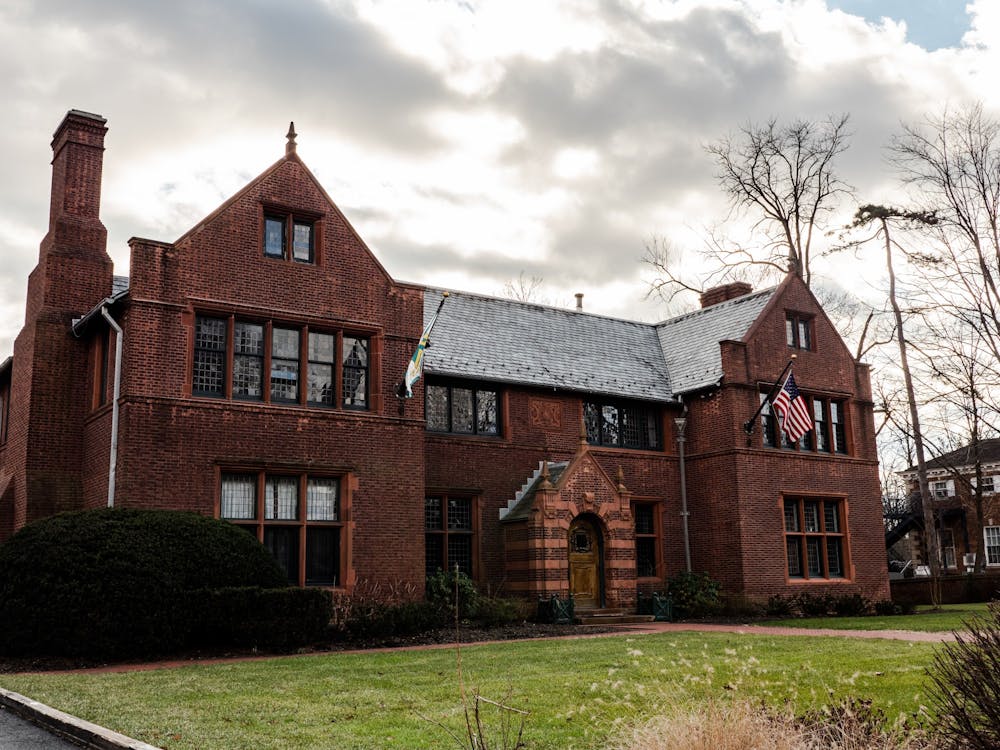On the morning of Friday Feb. 4, the Bicker process came to a close. In order to join six of the eleven eating clubs on campus, one must participate in a series of interviews and group activities over three consecutive days, referred to as bickering.
My participation in this incredibly competitive process was one that I did not anticipate. The opportunity for upperclass students who I did not know to measure and ultimately judge my execution of charisma and personability was not a particularly attractive process. These upperclass students exercising authority over so many of my classmates sounded embarrassing at best and utterly demoralizing at worst. It was initially difficult for me to identify how, or why, I found myself involved in the race to join an eating club.
A friend of mine who had chosen not to bicker asked me what compelled me to participate in the process, and more specifically, what had compelled me to bicker the clubs that I did.
Though unglamorous, much of the reason why I decided to bicker was because everyone else did — generally, about 70 percent of the student body participates in Street Week. Princeton’s social scene revolves almost entirely around eating clubs; to choose not to bicker seemed synonymous with limiting the partying opportunities available during my college experience.
Why I decided to bicker the specific clubs that I did, however, was less immediately answerable. My friend told me that this could be explained, at least in part, by my attraction to the club’s “clout.” It was true that I didn’t know any of the members; I had been to only a handful of their parties. What, then, was so attractive about joining the race to earn membership? Although this theory of “clout” initially seemed too simple to explain my motivation, could it, in fact, have been the prestige of the clubs that drove me to bicker?
To answer this question, I had to first identify the source of said prestige. It was not antiquity — though quite historic, the legacies of the eating clubs never once came up in conversation when deciding which club I would bicker. The eating clubs are unaffiliated with academics, so it wasn’t academic rigor, either. The only source of prestige I could think of was the rumor of prestige itself.
Desirability is self-perpetuating; one person pursuing membership in a particular eating club is enough to convince another that there is a reason for this pursuit. There need not be justification for prestige — there must only be the presence of want.
I had severely underestimated my susceptibility to the contagion of prestige-obsession, as well as my susceptibility to trusting the foundational basis for prestige itself. I believe that at Princeton, this susceptibility is exacerbated by our absence of affirmation.

At one of the most competitive universities in the nation, one can safely assume that every member of our student body is particularly imbued with a proclivity for competition. The reputation of an institution like Princeton attracts unimaginably high achievers, who must be at least moderately confident in their abilities to consider applying in the first place.
Upon matriculation, however, this confidence is immediately challenged. We are surrounded by students equally as remarkable, if not more so, than ourselves. Our classmates include Olympians, published poets, and entrepreneurs.
At Princeton, sources of validation are scarce, laying the groundwork for Bicker’s appeal. Bicker represents one of the few opportunities on campus to once again be told that you are special. Even if one hasn’t scored a seat at a United Nations climate conference or sold a novel yet, once accepted by a competitive eating club, students often claim the club’s prestige as their own, an emphatic rarity at an Ivy League school.
I do not think that joining an eating club is a bad thing, and will likely encourage rising sophomores to consider it. I do, however, believe that post-bicker introspection calls for an evaluation of why we pursue the things we do. This may serve as consolation for those who were disappointed by their Bicker results, and a reality check for those whose egos have been dramatically elevated by their acceptances.

Andi Grene is a sophomore from New York. She can be reached at agrene@princeton.edu.








